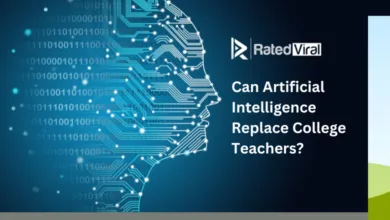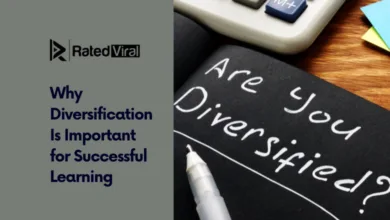Why Early Childhood Education Is Important for Further Academic Success
Early childhood education, often understated, stands as an essential foundation stone in a child’s holistic development. Beyond mere alphabets and numbers, this education domain establishes the groundwork for various cognitive, emotional, and social attributes, creating well-rounded individuals.
1- The Cognitive Advantages of Early Childhood Education:
-
Structured Learning Environment
One of early childhood education’s most overlooked benefits is exposure to a structured learning environment. Children introduced to such settings at a tender age develop a sense of routine, discipline, and orderliness. This early familiarity proves invaluable as they grow and transition to higher education levels. They are less likely to feel overwhelmed by the school setting, understand the importance of following schedules, and recognize the value of time management.
If a student hasn’t learned discipline from an early age, they might struggle with time management later on. In such situations, turning to online courses or writing services can help. The Write My Papers review offers clarity! Read the review to avoid unreliable services and pick only the best.
-
Brain Development and Neural Connections
The first few years of a child’s life are marked by rapid brain growth. During this time, neural pathways and connections are formed at an unprecedented rate. Engaging in stimulating educational activities can significantly enhance this neural connectivity, laying the groundwork for more complex cognitive functions in the future. When children are exposed to varied learning experiences, it encourages synaptic pruning.
In this process, unnecessary neural connections are eliminated, and essential ones are strengthened. This refinement process is critical for optimized brain function, better problem-solving skills, and enhanced creativity.
2- Socio-Emotional Benefits of Early Education:
-
Building and Nurturing Relationships
Early education isn’t solely about academic pursuits. It serves as a melting pot where children from diverse backgrounds come together, providing a rich tapestry of interactions. They develop crucial social skills as they engage with peers, teachers, and other staff. These include effective communication, collaboration, conflict resolution, and teamwork.
Moreover, these early interactions serve as a foundation for building lasting relationships in the future. They learn the nuances of friendship, trust, and mutual respect – indispensable attributes in adult life.
-
Understanding, Expressing, and Managing Emotions
The emotional curriculum in early childhood programs is as crucial as cognitive learning. Children are introduced to a broad spectrum of emotions and are taught to identify, understand, and express these feelings appropriately.
By role-playing, storytelling, and interactive discussions, they learn the difference between anger and frustration, happiness and excitement, or fear and apprehension. They also have tools and strategies to manage these emotions, ensuring they don’t become overwhelming or detrimental.
3- Preparing for Formal Schooling:
-
Academic Preparedness and Foundation Building
Early childhood education goes beyond mere play. It introduces children to the rudiments of literacy, numeracy, and foundational knowledge. They grasp the basics of reading, writing, arithmetic, and general knowledge through interactive activities, games, and structured lessons.
This early exposure ensures that they aren’t novices when they step into the world of formal schooling. They begin their primary education with a distinct advantage, having a solid foundation upon which advanced concepts can be built.
-
Cultivating a Lifelong Love for Learning
One of the most profound impacts of early education is the instillation of a genuine love for learning. When children associate education with fun, curiosity, and exploration, this positive sentiment carries to their later academic endeavors.
They view challenges not as hurdles but as opportunities to learn and grow. Other options are available if you’re finding it hard to study right now. For instance, you might consider using writing services. However, always research before choosing one. Reading reviews, like those for write my papers review, can provide insight into the quality of the service and help you avoid potential pitfalls.
4- The Link between Early Education and Later Academic Achievement:
Countless research studies and empirical data consistently emphasize the positive correlation between early education and future academic success. Those privileged with quality early learning experiences tend to outperform their peers in standardized tests.
They exhibit higher reading and mathematical proficiency, have elevated graduation rates, and are more inclined to pursue tertiary education. Beyond academic metrics, they often demonstrate better critical thinking skills, enhanced creativity, and a more profound ability to synthesize information from varied sources.
5- Holistic Development through Early Education:
-
Physical Development and Motor Skills
Early education goes beyond cognitive and emotional development. Children hone their motor skills through physical activities and tasks like drawing or crafting. These foundational skills, learned in childhood, can later translate into, for example, home repair skills for students. As they run, jump, or dance, they’re promoting physical health and laying the groundwork for future tasks, such as home repairs. This early training instills the value of an active lifestyle, precision, and the practical joy of hands-on work.
-
Cultural Awareness and Ethical Grounding
Understanding, respecting, and appreciating diverse cultures is paramount in today’s globalized world. Early childhood centers often introduce children to various festivals, traditions, and customs, broadening their horizons.
Through stories, celebrations, and interactions, they learn the value of diversity and the importance of inclusivity. Moreover, ethical lessons are interwoven into the curriculum, ensuring children develop a solid moral compass and understand right and wrong.
Conclusion
In encapsulation, early childhood education is the bedrock upon which future academic success and holistic development rest. Recognizing its profound significance and tirelessly advocating for its quality and accessibility is the need of the hour. Such endeavors promise a brighter, more educated, and harmonious future for the coming generations.





